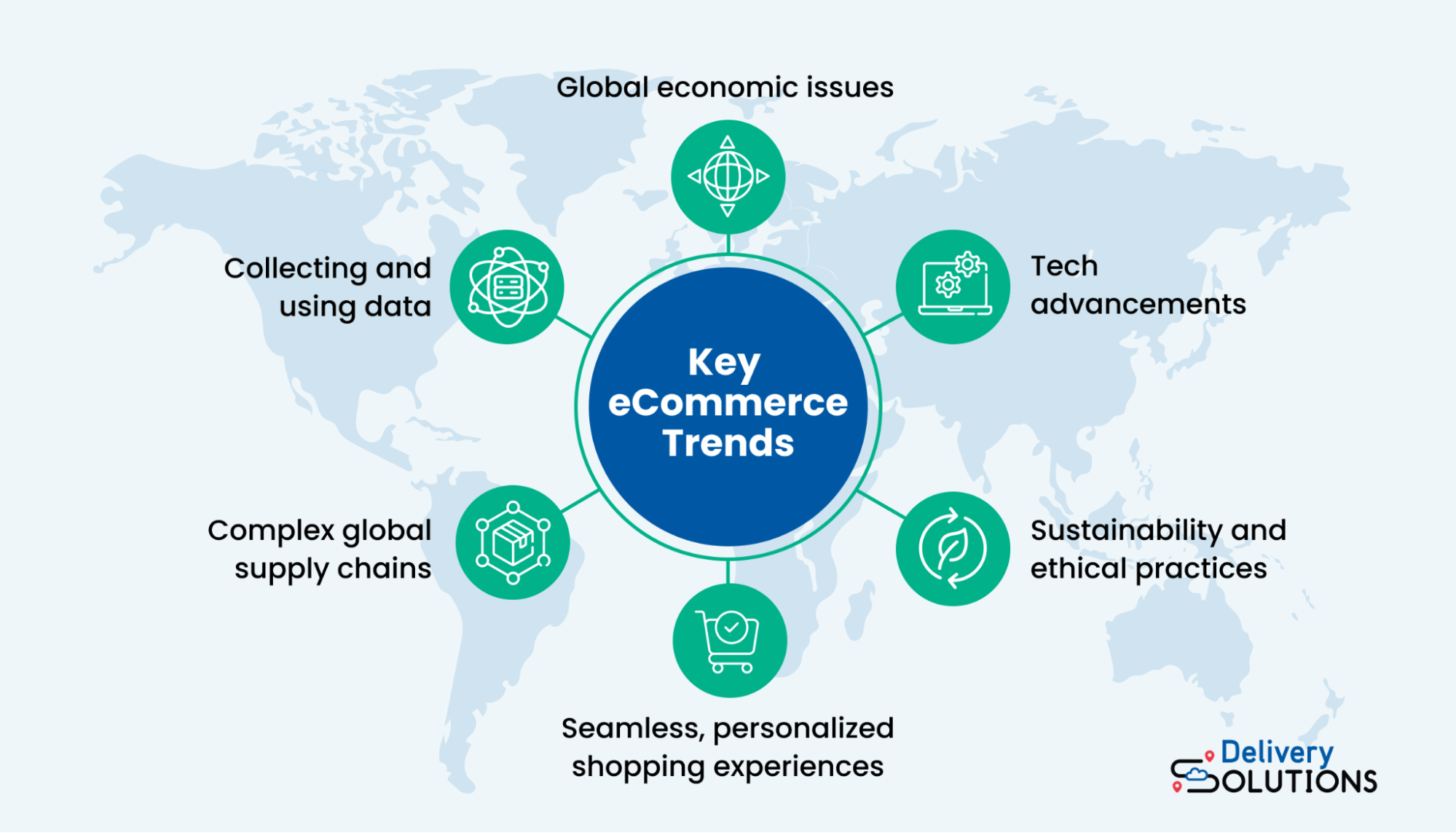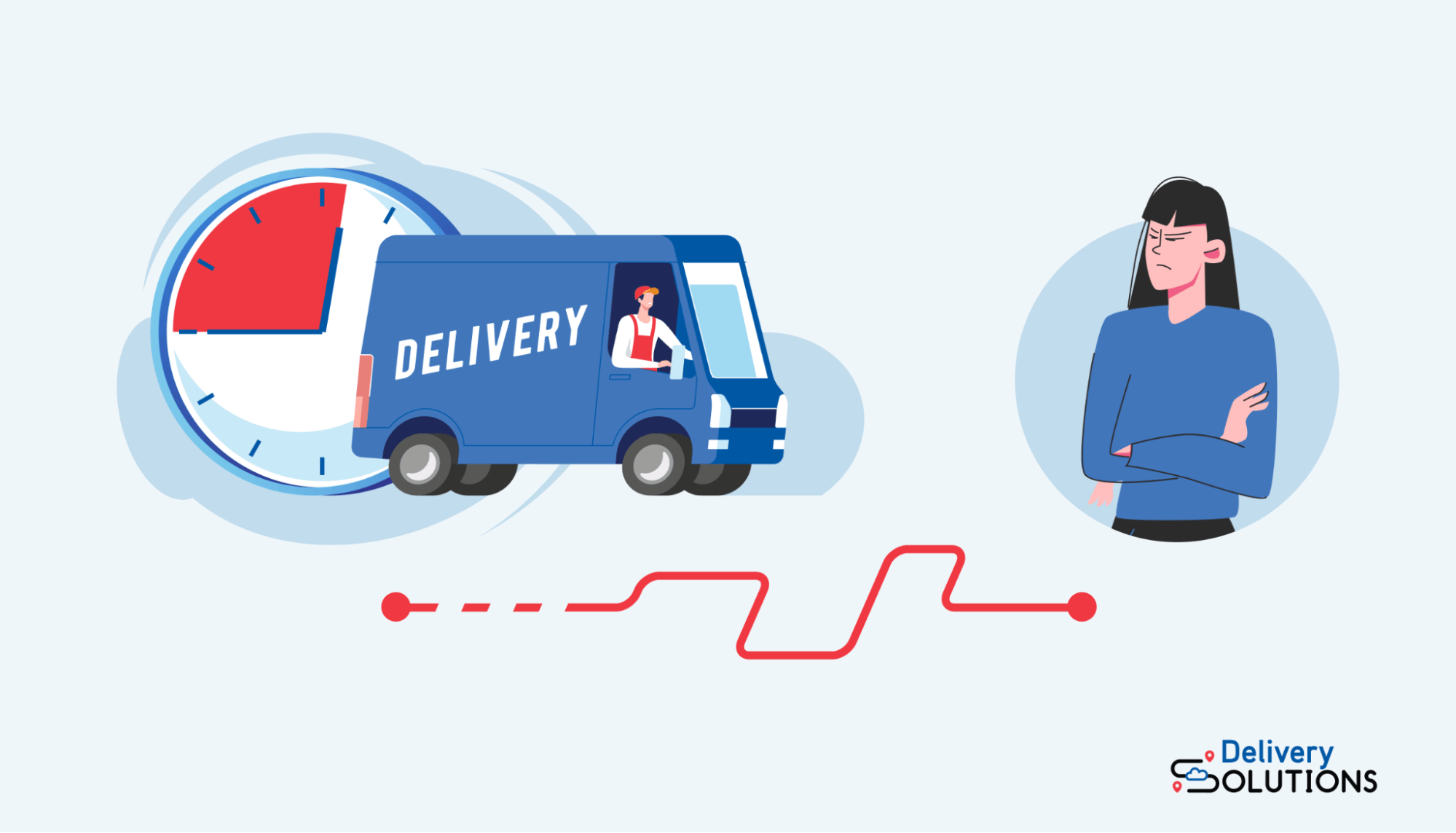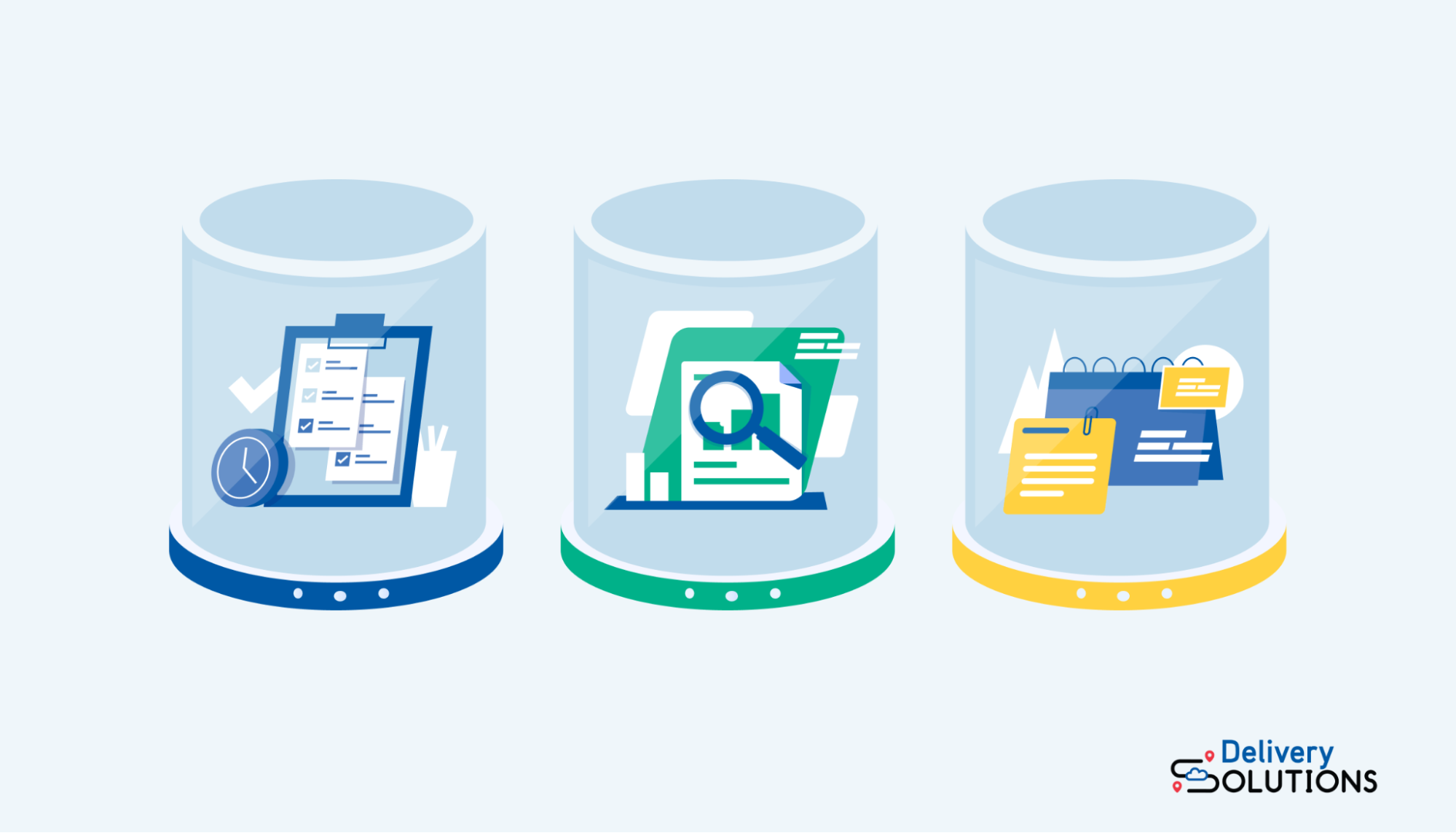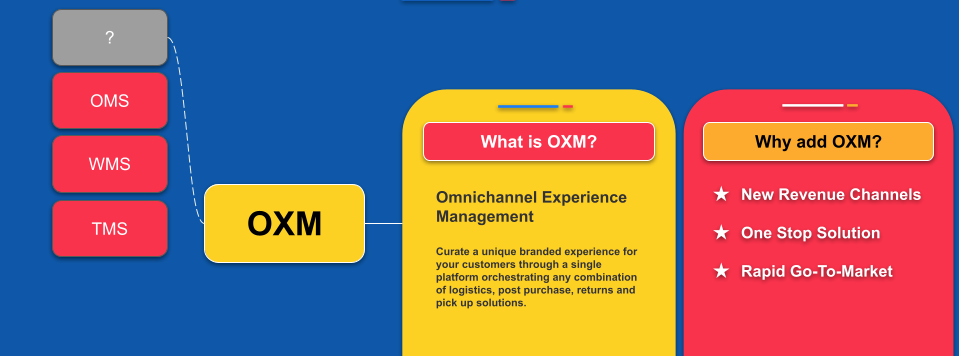Driven by globalization, technological advancements, and growing demands for sustainable and ethical practices, the world of e-commerce is rapidly evolving.
However, modern e-commerce still relies on traditional fulfillment methods which have struggled to keep pace, resulting in inefficient delivery processes, fragmented customer data, and disconnected customer experiences.
Fortunately, this year's SHOPTALK event has an agenda that highlights innovative solutions to these challenges. One such solution is a unified omnichannel platform, which has the potential to revolutionize e-commerce orchestration and promote global supply chain resilience.
This article will delve into the key trends shaping e-commerce, the obstacles that traditional methods face, and the revolutionary benefits of such a unified experience. So, let's dive in.
SHOPTALK: Key trends in e-commerce
As a key retail and e-commerce event, SHOPTALK brings together thought leaders, experts, and executives to discuss the latest industry trends, innovations, and business opportunities in the retail and e-commerce space.
The event features keynote presentations, panels, interactive peer group discussions, and networking opportunities focused on topics such as technology, consumer behavior, supply chain changes, and digital marketing.
The aim of the event is to facilitate collaboration and idea-sharing among retail and e-commerce professionals and to showcase the latest trends, products, and services in the industry.
Delivery Solutions will be presenting its platform at this year’s SHOPTALK, with the goal of solving some of the fulfillment issues with the ‘after cart’ process and final mile services. But there are many trends and changes within the e-commerce industry that contribute to streamlined fulfillment and impactful brand experiences.
Here are a few of the major topics this year’s SHOPTALK will cover:

The fallout of COVID-19 and its impact on e-commerce
In the wake of COVID-19, there’s been a shift in consumer behavior with more and more customers shopping online. Industry leaders at SHOPTALK will discuss ways to build resilience into global supply chains to streamline international systems. Attendees will also learn new insights on inflation and other economic forces shaping the retail ecosystem.
Advancements in technology
SHOPTALK will host discussions on the latest advancements in e-commerce technology, including:
- Artificial intelligence and machine learning
- Virtual and augmented reality
- Automation
- Blockchain
Experts will also explore cutting-edge tools that are shaping the future of retail practices, such as:
- Marketing technologies
- Payments and checkout innovations
- Technologies for hiring, managing, and empowering the retail workforce.
Sustainability and ethical practices
At this year’s SHOPTALK, attendees will learn about the importance of sustainability in retail, with 66% of consumers citing it as one of their top five considerations when making purchasing decisions.
Experts will discuss:
- Consumer demand for sustainable products
- Navigating brand purpose, politics, and activism
- Rise of resale, upcycled products, and the circular economy
Speakers will discuss the importance of ethical practices in supply chains and explore sustainable tech solutions. They’ll also give new tactics and business models for improving both profitability and sustainability in the retail industry.
Seamless, personalized shopping experiences
SHOPTALK speakers will talk about how to meet the rising demand for seamless, personalized shopping experiences by building unified retail experiences and omnichannel organizations.
Experts will explore the emergence of new channels such as:
- Social commerce
- Voice commerce
- Live-streaming
- Shoppable video
Attendees will learn about virtual goods and immersive consumer experiences, omnichannel marketing tactics, and personalization at scale.
Global supply chain and fulfillment complexity
With the increasingly complex global supply chains and fulfillment systems, it can be hard to meet consumer expectations around convenience.
Attendees will learn tactics and technologies to streamline fulfillment, last mile delivery, and explore ways to build resilience into global supply chains. They’ll also gain insights into making the supply chain a strategic differentiator, as well as discovering convenient and cost-effective fulfillment and delivery options.
Leveraging e-commerce data
Data collection and privacy is a hot topic for e-commerce brands. At the conference, speakers will offer valuable insights into how data usage is shaping the retail community, both for monetization and to improve the customer journey.
Attendees will also learn about data and personalization technology to help leverage data effectively throughout an entire organization.
The challenges of traditional e-commerce orchestration methods
The challenges of traditional e-commerce orchestration methods are many and varied, and they can have a significant impact on retailers' bottom lines.
Inefficient fulfillment processes continue to plague conventional e-commerce fulfillment models.

Manual inventory management often leads to overstocking or understocking, while the lack of automation in order processing can result in errors and delays. Also, outdated shipping and delivery methods often result in slow delivery times and high shipping costs, a significant challenge for 58% of retailers.
Additionally, coordinating and synchronizing multiple carriers and suppliers can be a major pain point in last-mile delivery. Without a reliable system to automate eligibility and assign deliveries accordingly, companies struggle with the delays and mistakes associated with manually managing third-party logistics companies for last mile delivery.
Another challenge faced by retailers is the high cost of maintaining and upgrading legacy systems.
Outdated technology or software that may not be compatible with modern systems can be expensive to maintain and upgrade. These compounding costs can leave retailers caught in a limbo between old and new technologies.
Even if a company does have the right systems in place, they’re often fragmented.
A lack of integration and synchronization between different channels and systems can disrupt internal operations and degrade customer experiences. If a team member can’t easily connect between their tools and resources, processes become clunky and ineffective.
This can also result in problems with visibility, particularly when it comes to siloed customer data, where data spreads out across different systems and channels.

Fragmented data makes it difficult to get a complete and accurate view of customer behavior and preferences, resulting in duplicate or incomplete data. Without clear visibility, it’s tough to create a personalized and seamless shopping experience. Retail brands not only fail to customize the buying experience, but they can’t offer final mile services that are customized to shopper needs.
Even with easy access to data, some brands are still failing to personalize experiences properly due to a lack of tools and resources.
Limited personalization capabilities prevent retailers from offering tailored recommendations, promotions, content, and journeys based on behaviors and attributes.
Finally, there’s the challenge of scaling customer interaction.

Nowadays, customers demand more brand interaction than ever before, with 83% of customers saying that they expect regular communication about anything they’ve ordered.
Companies that plan to scale using conventional support channels either face a backlog of customer support queries or the high costs associated with rapidly growing customer service teams. There’s a strong need for scalable solutions that don’t require organizations to dramatically increase team size.
Introducing the Delivery Solutions unified platform
Our suite of products sits atop a single thread, which allows retailers to streamline fulfillment processes to provide exceptional fulfillment experiences for their customers across all channels.
It has the potential to transform the world of e-commerce. Here’s how.
What’s in a unified omnichannel platform?
Delivery Solutions unified omnichannel experience platform plugs straight into existing retail technology stacks alongside order-, warehouse-, and transport-management systems. Focusing on the ‘after cart’ experience — it helps retailers streamline fulfillment.

The platform serves as an umbrella layer, providing a centralized hub for retailers to manage and optimize their fulfillment operations. It is a core center of useful and insightful analytics, data, and operational tools with hubs to orchestrate processes such as post purchase processes, logistics, delivery, pickup, and returns, and last mile delivery, among others.
Retailers can quickly integrate their existing solutions or supplement/replace their own providers with one of the many available through the platform. The platform provides additional orchestration oversight, rate shopping capabilities, and versatility, even if a retailer has their own suite of individually contracted providers for shipping or returns.
OXM supplies flexible optionality for consumers and merchants for innovation at scale, facilitating a seamless omnichannel shopping experience for customers.
What are the benefits of unification?
Delivery Solutions' platform offers a range of benefits that can help enterprise retailers streamline their logistics and shipping processes, enhance post-purchase experiences, and drive revenue growth.
The platform streamlines post-purchase processes by consolidating customer data, enabling companies to personalize fulfillment from a unified interface. With all customer history and behavior in one place, it’s easier to capitalize on how customers behave and personalize based on what they expect. That way, you can tailor final mile services to meet customer demand.
Another key benefit of it is its ability to seamlessly manage multiple third-party logistics and shipping partners in a single platform. This enables retailers to offer multiple delivery and collection options without the struggles of juggling third-party relationships manually.
The platform also offers scalable communication solutions that can be tailored to meet the specific needs of each business. This makes sure that customer interactions are consistent, personalized, and timely, enhancing the overall experience.
The potential of omnichannel unification to transform e-commerce
Delivery Solutions’ platform has the potential to revolutionize e-commerce by improving customer experiences, increasing efficiency and profitability, and enabling innovation at scale.
One of the significant benefits of unification is its ability to provide customers with improved experiences, such as personalization, faster delivery times, and affordable last-mile options.
According to a study, 61% of customers would switch providers to avoid paying for expensive delivery. Therefore, offering various affordable delivery and collection options, such as BOPIS, BOPA, curbside, and same-day delivery, is crucial for retailers.
Multiple delivery and collection options not only help keep costs low for customers, but this range of services also improves convenience. Customers willing to pay extra for same-day delivery can do so, while those who want to keep shipping costs to a minimum can pick up their items from lockers or in physical stores. This is why 42% of retailers say that offering multiple delivery and collection options is their most important omnichannel brand strategy.
However, without a comprehensive tool to manage these processes, retail businesses are at risk of high delivery costs due to failed deliveries, slow service, and logistics errors.
Since these costs can’t be pushed on to customers or they’ll use a different retailer, companies need a solution like ours that facilitates post-purchase processes to minimize delivery costs.
The platform not only makes it easy to manage a whole gamut of third-party logistics and shipping services, but it’s also straightforward to set up a streamlined returns process and manage inventory effectively.
The platform enables retailers to gain real-time visibility into inventory levels and order status, allowing them to adapt to changes quickly. Improved inventory management also reduces costs by avoiding overstocking or understocking, and minimizes failed deliveries due to inaccurate inventory.
To top it off, better management of delivery fleets means fewer failed deliveries, economic packing tactics, and optimized routing. Greater efficiency not only lowers costs, but also reduces the carbon footprint of trucks on the road, improving sustainability.
Plus, it offers greater flexibility and adaptability by providing customizable fulfillment options to meet customers' changing needs and changing e-commerce practices. Retailers can also scale their operations efficiently and cost-effectively across all sales channels so customers have access to straightforward fulfillment wherever they shop.
Lastly, the unified platform encourages scalability. Regarding communication, automated messaging and direct driver-to-customer conversations reduces the number of support tickets directed to the customer service department. Companies can scale communications without needing to hire more agents.
On top of that, Delivery Solution's products facilitate innovation at scale by providing analytics, data, and operational tools to gain valuable insights into fulfillment processes. This allows retailers to identify areas for improvement and optimize their processes accordingly.
Future of e-commerce omnichannel orchestration
The future of e-commerce omnichannel orchestration is promising, as retailers continue to prioritize the customer experience and seek ways to improve it.
These platforms offer the necessary tools and analytics to optimize fulfillment processes in one place, providing retailers with the flexibility and adaptability they need to transform their e-commerce operations and final mile services.
By leveraging Delivery Solutions platform, retailers can stay ahead of the curve and meet the ever-changing needs of consumers. Join us at SHOPTALK to learn more.
Ryan Caldarone
Ryan is a Sr. Digital Marketing Manager with over ten years of experience in B2B eCommerce, specializing in brand storytelling and content. Having contributed to hundreds of creative projects for SMBs and startups across the tech, energy, and fine arts sectors, Ryan brings diverse perspectives.
Topics from this blog: Ecommerce
%20Feature%20Image.png)